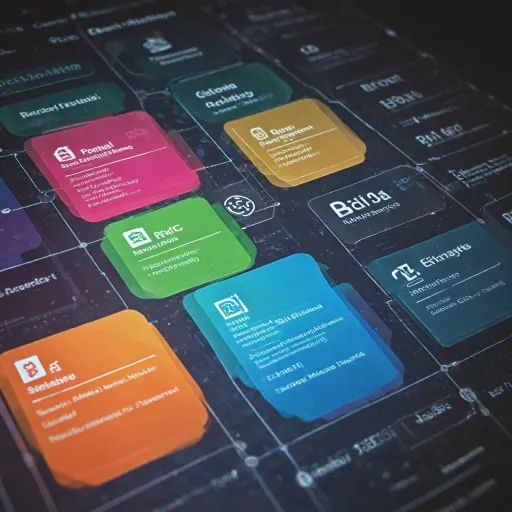
Understanding the role of admin assistants in HR analytics
The expanding responsibilities of administrative assistants in HR analytics
Administrative assistants play a crucial role in the evolving landscape of human resources analytics. Their responsibilities now go far beyond traditional office management and word processing. Today, administrative assistants are expected to support HR teams by handling data, managing sensitive medical records, and assisting with project management tasks. This shift requires a blend of technical skills and soft skills, making the job more dynamic and integral to HR analytics success.
In many organizations, administrative assistants are the backbone of HR operations. They help with data entry, maintain accurate records, and ensure compliance with legal and medical privacy standards. Their ability to organize information, coordinate schedules, and communicate effectively with both HR analysts and executive assistants is essential for a productive work environment. Administrative assistants also support executive administrative staff and legal assistants by preparing reports, managing social media updates, and using tools like Microsoft Office for data visualization and analysis.
As HR analytics becomes more data-driven, administrative assistants must develop new skills. Training in cybersecurity awareness, data management, and technical tools is increasingly important. Assistants who can adapt to these changes are better equipped to handle the demands of the modern HR office. Their role often includes supporting project management initiatives, ensuring that tasks are completed on time, and helping HR workers make informed decisions based on accurate data.
For those interested in understanding how compensation structures impact HR analytics, exploring the meaning of compensation DOE in HR analytics can provide valuable insights into the administrative assistant’s role in managing sensitive compensation data.
Overall, the job of an administrative assistant in HR analytics is multifaceted. It requires a balance of technical skills, leadership skills, and problem solving abilities. As the field continues to evolve, ongoing training and adaptability will remain key for administrative assistants to thrive in this challenging and rewarding work environment.
Key technical skills for admin assistants in HR analytics
Mastering the Tools of the Trade
Administrative assistants in HR analytics need a solid foundation in technical skills to support data-driven decision-making. The modern office environment demands proficiency in various digital tools and platforms. Familiarity with Microsoft Office—especially Excel for data management and word processing for documentation—is essential. Assistants should also be comfortable with HR information systems, data visualization software, and project management tools. These skills enable efficient handling of large datasets, accurate reporting, and seamless communication within HR teams.
Data Handling and Cybersecurity Awareness
Working with sensitive employee data requires a keen understanding of data privacy and cybersecurity. Administrative assistants must be trained to manage confidential information, whether dealing with medical records, legal documents, or payroll data. Awareness of cybersecurity best practices, such as secure password management and recognizing phishing attempts, is crucial to protect both the organization and its workers. This technical skill set is increasingly important as HR analytics relies more on digital platforms and cloud-based solutions.
Adapting to Specialized HR Tasks
The job of an administrative assistant in HR analytics often involves specialized tasks. For example, assistants may support legal compliance by managing documentation for assistants legal or executive administrative roles. In medical or healthcare settings, handling medical records and understanding relevant regulations is a valuable skill. Social media management and digital communication are also becoming part of the assistant’s role, requiring adaptability and ongoing training.
- Proficiency in data entry and database management
- Experience with project management software
- Ability to create clear data visualizations for HR reports
- Understanding of time management tools to prioritize tasks
For more insights on how overtime pay impacts HR analytics and the administrative assistant's role, explore this guide to understanding overtime pay for salaried employees.
Critical soft skills for supporting HR analytics
Building trust and communication in HR analytics support
Administrative assistants play a vital role in supporting HR analytics by leveraging a blend of soft skills and technical abilities. While technical skills are essential for handling data and tools, soft skills are equally important for creating a productive work environment and ensuring effective collaboration with HR analysts and other office workers.
- Communication skills: Clear and concise communication is crucial when sharing data insights, coordinating tasks, or providing updates to management and executive assistants. Administrative assistants must be able to explain complex information in a way that is accessible to all stakeholders, including those without a technical background.
- Problem solving and adaptability: The HR analytics landscape is constantly evolving. Assistants need to quickly adapt to new tools, processes, and data requirements. Strong problem-solving skills help them address unexpected challenges, whether it’s a data discrepancy or a sudden change in project management priorities.
- Attention to detail: Handling sensitive data, such as medical records or legal documents, requires a high level of accuracy. Administrative assistants must ensure that all information is entered and managed correctly to maintain data integrity and comply with privacy regulations.
- Time management and prioritization: Balancing multiple tasks—like scheduling, word processing, and supporting data visualization projects—demands excellent time management. Administrative assistants often juggle competing deadlines, making the ability to prioritize tasks a key skill for success.
- Teamwork and leadership skills: Whether working with executive administrative staff, secretaries, or assistants in legal and medical fields, fostering a spirit of teamwork is essential. Leadership skills, even in non-managerial roles, help drive projects forward and support a positive office culture.
Continuous training in soft skills, alongside technical skills, ensures that administrative assistants remain effective in their roles. For those looking to deepen their understanding of the skills gap and how to address it within HR analytics, this guide to mastering the art of skills gap analysis for HR professionals offers practical insights.
Ultimately, the combination of soft skills and technical expertise enables administrative assistants to support HR analytics initiatives, enhance data-driven decision making, and contribute to the overall success of the organization.
Data privacy and ethical considerations
Safeguarding Sensitive HR Data in the Office
Administrative assistants play a vital role in handling sensitive HR data, from medical records to payroll information. With the increasing use of digital tools and data visualization platforms in HR analytics, understanding data privacy and ethical considerations is essential. Assistants must be aware of the risks associated with storing and sharing confidential data, especially in a dynamic work environment where multiple workers and executive assistants may access the same systems.
Key Privacy and Ethical Practices
- Cybersecurity awareness: Administrative assistants should receive regular training on cybersecurity best practices. This includes recognizing phishing attempts, using strong passwords, and ensuring secure access to HR management tools.
- Data access controls: Only authorized personnel should have access to sensitive HR data. Assistants must understand how to manage permissions within systems like Microsoft Office or specialized HR software.
- Confidentiality protocols: Maintaining confidentiality is a core skill for assistants in HR analytics. Whether handling medical records or legal documents, strict adherence to privacy guidelines is required.
- Ethical data handling: Administrative assistants should be trained to recognize ethical dilemmas, such as improper sharing of employee data or misuse of social media for HR purposes. Problem solving and leadership skills are important for navigating these situations.
Supporting Compliance and Trust
Administrative assistants contribute to compliance with regulations like GDPR or HIPAA by following established procedures for data management. This includes proper documentation, secure word processing, and careful handling of both digital and paper records. Assistants legal and executive administrative workers must also stay updated on changes in data privacy laws through ongoing training and project management initiatives.
By prioritizing data privacy and ethical considerations, administrative assistants help build trust within the HR team and the wider organization. Their skills in technical tools, soft skills like discretion, and commitment to ethical standards are crucial for effective HR analytics and overall job performance.
Collaboration between admin assistants and HR analysts
Building Strong Partnerships for Effective HR Analytics
In the modern HR work environment, collaboration between administrative assistants and HR analysts is essential for successful analytics projects. Administrative assistants bring a unique blend of organizational, technical, and soft skills that complement the analytical expertise of HR professionals. By working together, both roles can drive better outcomes for data-driven HR initiatives.
- Project management and coordination: Administrative assistants often manage schedules, coordinate meetings, and track project milestones. Their project management skills help keep analytics projects on track and ensure that deadlines are met.
- Data preparation and documentation: Assistants play a key role in collecting, organizing, and maintaining data. Their attention to detail supports data accuracy and helps HR analysts focus on deeper analysis. This is especially important when handling sensitive information like medical records or legal documents.
- Communication and information flow: Administrative assistants act as a bridge between HR analysts, executives, and other departments. Their strong communication skills ensure that insights from analytics are shared effectively and that feedback is gathered from all stakeholders.
- Technical support: With training in tools like Microsoft Office, word processing, and data visualization software, assistants can help prepare reports, presentations, and dashboards. Their technical skills free up analysts to focus on interpreting data and developing strategies.
- Ethical and cybersecurity awareness: Administrative assistants are often the first line of defense for data privacy. Their understanding of cybersecurity best practices and ethical considerations helps protect sensitive HR data and supports compliance with regulations.
For administrative assistants, developing both technical and soft skills is crucial. Skills such as problem solving, leadership, and adaptability enable them to respond to the evolving needs of HR analytics. Ongoing training in new tools and data management practices ensures that assistants remain valuable partners in the analytics process.
Ultimately, the collaboration between administrative assistants and HR analysts enhances the quality of HR analytics, supports informed decision-making, and contributes to a more efficient and responsive HR function.
Continuous learning and adapting to new HR technologies
Staying Ahead in a Rapidly Changing HR Landscape
Administrative assistants working in HR analytics face a fast-evolving work environment. New tools, data management platforms, and regulations emerge regularly. To remain effective, assistants must prioritize continuous learning and adaptability. This goes beyond mastering current technical skills or office software. It means being proactive about training and staying updated on the latest trends in data privacy, project management, and even cybersecurity awareness.
- Embrace ongoing training: Seek out workshops, webinars, and online courses that focus on HR analytics, data visualization, and advanced word processing. Many organizations offer internal training, but external certifications can also boost your credibility.
- Leverage technology: Familiarity with tools like Microsoft Office, social media platforms, and specialized HR analytics software is essential. Regularly explore new features and updates to maximize efficiency in tasks such as medical records management or legal documentation.
- Develop adaptive soft skills: Flexibility, problem solving, and leadership skills are just as important as technical skills. Being open to change and willing to learn from others—including executive assistants, secretaries, and even assistants legal—can enhance your ability to support HR analytics projects.
- Network and share knowledge: Join professional groups or online forums related to administrative work and HR analytics. Sharing experiences and solutions with other workers can help you discover new approaches to common challenges.
Continuous learning is not just about individual growth. It also strengthens the entire HR team, ensuring that administrative assistants remain valuable partners in data-driven decision making. By investing in your own development, you help your organization adapt to new challenges and opportunities in HR analytics.













